Domestic violence: One woman’s escape from coercive control
Coercive control is a form of domestic abuse where perpetrators use isolation, humiliation, blame, shame, manipulation, threats and intimidation. This is one woman’s story of her escape with her two daughters.
NSW
Don't miss out on the headlines from NSW. Followed categories will be added to My News.
Placing an ornament on a Christmas tree is an overwhelming moment for Anna and her two young daughters.
This is the first time they have ever had a Christmas tree — and the first time they have even been allowed to celebrate Christmas.
We can’t use Anna’s real name as she is in a Sydney refuge with her two girls, hiding from the father of her daughters.
Her final escape from her controlling partner coincided with Covid, which complicated matters for many victims of domestic violence across NSW this year.
She is a victim of coercive control, an insidious form of domestic violence that was highlighted in the coronial inquest into the death of Hannah Clarke and her three children, who were burned to death by her ex-partner Rowan Baxter.
While that was an extreme example, coercive control is sadly far too common.
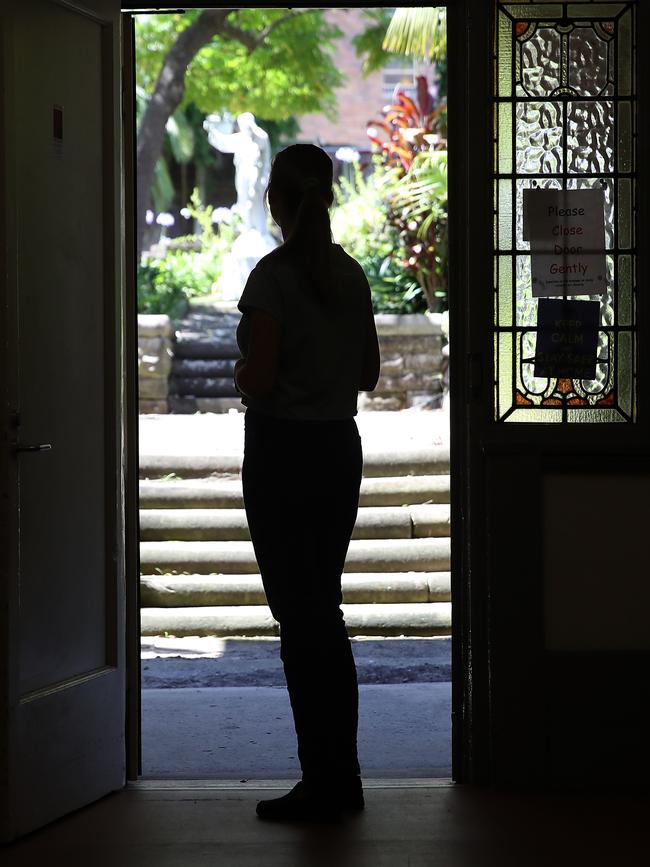
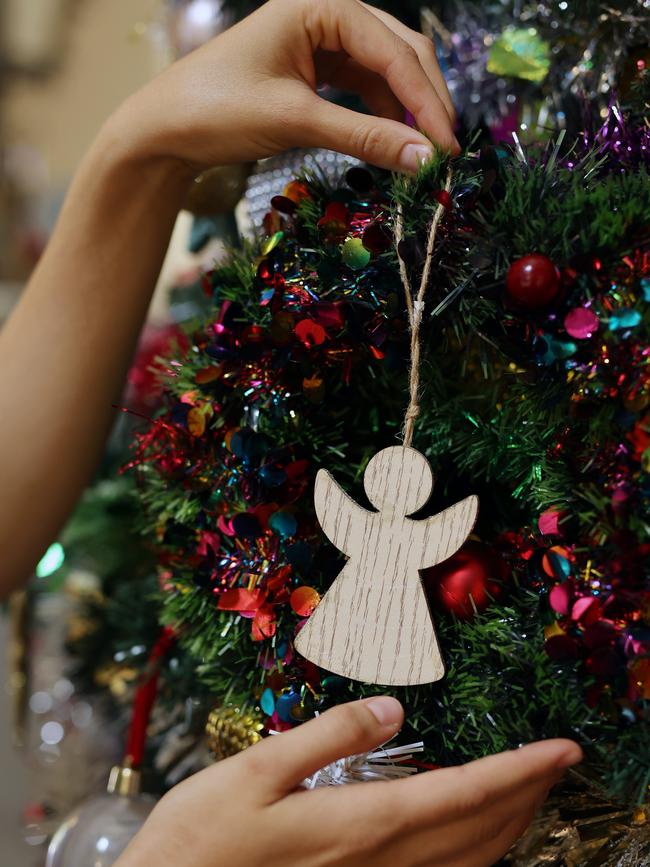
At first, it was imperceptible. Anna was just 23 when she began a relationship with him, a man she had known since she was 12. Anna had grown up with domestic violence and this man’s controlling ways felt strangely normal.
“I knew him for a long time. I had my own place and he liked it. I was very confused and he was just there and he seemed to genuinely care in the beginning,” she said.
“I didn’t come from healthy family so I just felt that is how people treat each other.”
That treatment included threats, humiliation, blame and financial control that ever so slowly tightened a noose around Anna’s neck.
“He was controlling and it was hard because I thought I was the one to blame, that I was not good enough. There was manipulation and control. It was like a brain game. I didn’t know in the moment it was happening,” she said.
If she spoke out, he would get angry but, although the violence was there, it was not, initially, directed at her.
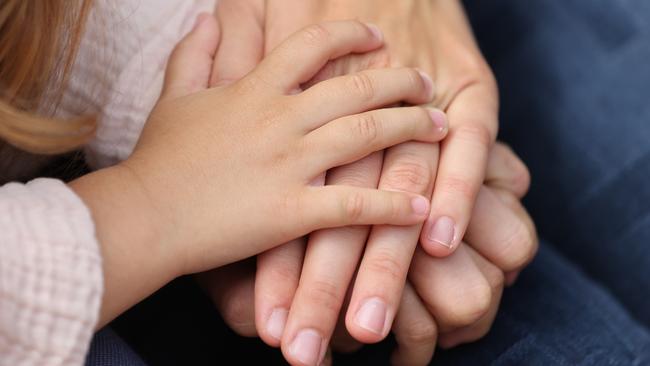
The manipulation already had her walking on eggshells but it got worse after the birth of their first child. She was then without money and financially dependent on him.
“I never had friends, I was really isolated and I had a hard time with my parents so I didn’t really have anyone else,” she said.
“I was not working and very dependent on this person financially. He was providing but just providing, most the time I would have to fight with him for clothing.
“He questioned everything like: ‘How much is it?’ If I said it’s $2.99, that’s what he would send, I could not get more, so he was very controlling, I did not have any access to money.
“I lost myself completely. I didn’t had anything, no skincare, nothing personal. I had shampoo and soap and it was: ‘Okay, that is good enough for you, you don’t need anything else’.
“As for clothing, I had one pair of shoes: ‘You do not need more than that,’ he’d say. Even the shopping list, I could not get healthier food or what I wanted because it was more expensive and he’d argue over the price.
“Even clothes for my girl, she was growing and needing new sizes and he would not provide for that. Or gifts, we did not celebrate any occasion, not even birthdays because he did not want to pay the money or put in the effort.”

Pregnant with her second child, she knew deep down it was not a healthy environment to bring up children, so she left for the first time.
“I left because I started to put my daughter first, I just knew it was not right,” she said.
“Is it better for her to have a dad, or not have a dad but a healthy life … what is better and I thought it was better not to.
“I didn’t not want her to grow up having issues and feel she was not good enough.
“I wanted a better life for her.”
Neighbours had helped her out with Centrelink and in desperation she reached out to her parents.
“I did reach out at that stage and I moved in on my own place and my parents helped me by putting their name on the lease because real estate agents do not like the Centrelink payments,” she said.
“I was there for two or three months. I was close to giving birth to our second child and I thought I was going to need help and at that stage my ex-partner seemed keen on helping.
“He liked the place I was in and I had gotten strong and he wanted to get in. He moved in to help me but the promises were very short. It was a cycle.”
Again she left but this time it was right in the middle of the Delta outbreak in Sydney.
Covid really hit domestic violence shelters.
Carmel Massap from St Vincent’s de Paul is manager of several inner Sydney refuges. When Covid hit, many facilities had to halve their intake to comply with health measures.
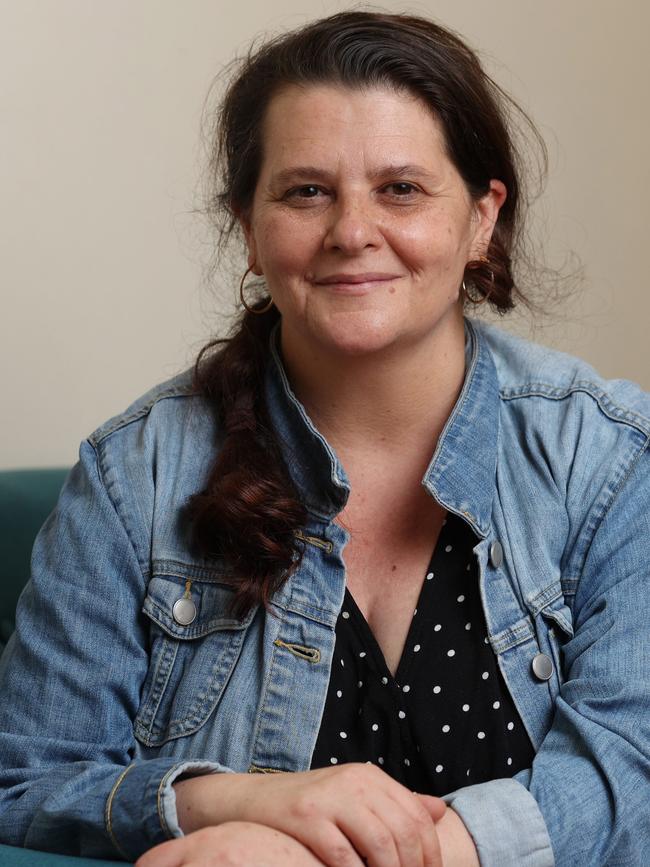
“Due to the shared spaces, it came down to what was safe enough to social distance and with shared bathrooms and kitchens and living spaces that was impacted,” she said.
The average stay in a refuge is three to six months and, as women left, their spots were closed down.
Anna found herself with a baby and a two-year-old floating between services that were doing their best in a crisis. She was in and out of hotels and said she simply did not feel safe. Just like Stephanie Land from the Netflix series Maid, poverty and insecurity reeled her back to familiarity.
“I was floating between hotels and different services, and in and out. I was homeless with my girls and ended up back with the dad of the girls because I thought it was safer for the girls than just being everywhere all over the place,” she said.
“He was in a place with separate rooms and I thought: ‘Can we do this for the girls, can you help us, can we move in?’ I went back not for a relationship but the girls cannot be all over the place, they need to be in good spot so I can find a place. I felt it was safer to go back. Physically he had never done things to them or me.”
Anna had only been there a few weeks when the relationship spiralled again.
“He can’t stand being around crying so when the children cried he would get worked up,” she said.
“It affects him quite a lot but this day I wanted to have a shower.
“He came home from work and I said: ‘I’m going to have a quick shower, please look after them’. I was in the shower for two minutes and then I heard real crying. I turned off the water and I could hear him being very aggressive, so I ran out and my daughter was red all over her neck and face and she couldn’t breathe properly.
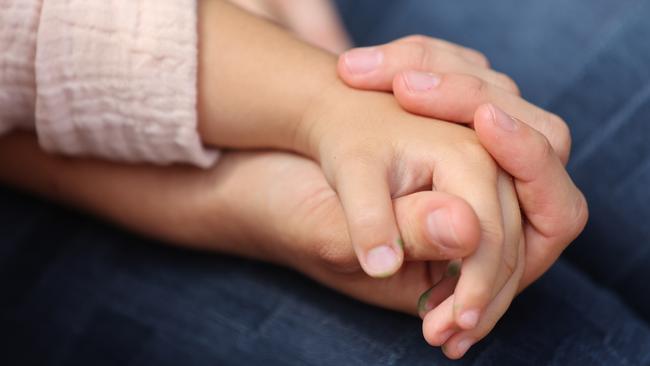
“He choked her, she couldn’t breathe properly. I took the girls in the bedroom, safe away from him and asked if she was okay and she pointed to what he did, used her hands (around her throat) and what happened.
“It was like a switch personality for him. He was pale and sweating and like an animal.
“I went out to him and asked him to leave. He wouldn’t leave and he came up over me and stood over me with his fists clenched and growling at me to stop talking.
“Inside I froze and thought in a second he was going to grab me, so it was stupid of me, but I called the police on loudspeaker.
“He went and sat on the couch. The police were asking what was going on and my mind, it’s like everything slowed down. I went into the bedroom with the girls and locked the door and I whispered what had happened.
“I’d never done something like this before and then the police came but he would not let them in.
“I came out and he was like: ‘What did you do?’ He was so angry with me. I said: ‘Answer the door’ and he was looking at me like he was going to kill me. They took him for questioning and while they did that I tried to sort the girls to sleep, then it was: What is going to happen next?”
The police put in a 24-hour apprehended violence order.
“The next day, I just did not feel safe, I needed to get out. I wanted to get out before 3pm when he finishes work. I had just a suitcase with our pyjamas and a pair of clothes for the next day and just the girls’ favourite toy and books,” she said.
The event shook Anna to the core. She was lucky enough to secure a place at a refuge.
She is awaiting a court hearing next year. An AVO is in place for two years.
She has her own room, a case manager, counselling and support.
“It has been great, at the beginning he was trying to find the location so it was very hard but this place is so secure and safe,” she said.
Like the scene from Maid, Anna was shown into a “shop” of donated clothes in the refuge to choose what she and the girls needed.
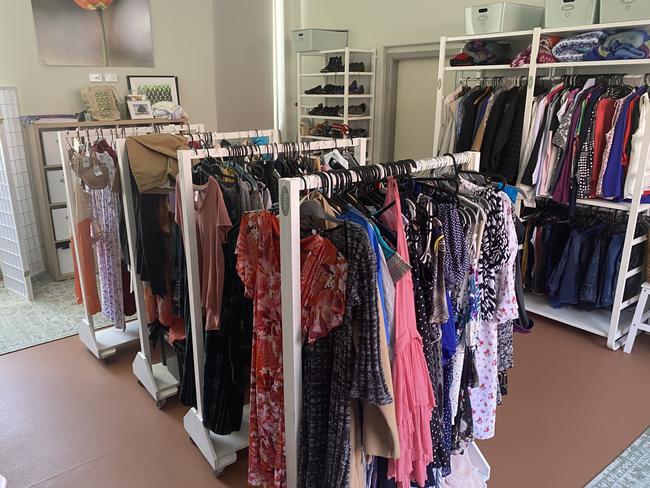
Anna is now applying for jobs and planning a future for her girls.
She would like to study but in the meantime is applying for jobs as a customer service officer in a bank, because the woman who helped her set up her own bank account was so very kind.
“I feel like I’m a completely different person. I’m trying to get to know myself all over again,” she said.
“I want to provide for my girls and have them have a happy and good life and make sure they do not go through what I went through.”
Their lives have been transformed.
“We went trick or treating and it was overwhelming because it was the first time we had done something normal, we had never done that,” she said.
“And now I am doing the Elf On The Shelf and the Christmas tree here, it was overwhelming to see the way the girls responded, there is so much joy.
“I feel brave now, I feel empowered. I feel like I am in control and doing my own thing. My childhood was controlling and abusive and my relationships started to fall into that too. Now it is overwhelming that I make decisions and I am allowed to make those decisions.”
1800 RESPECT/1800 737 732
DVConnect: 1800 811811
NSW Domestic Violence Line 1800 656 463




